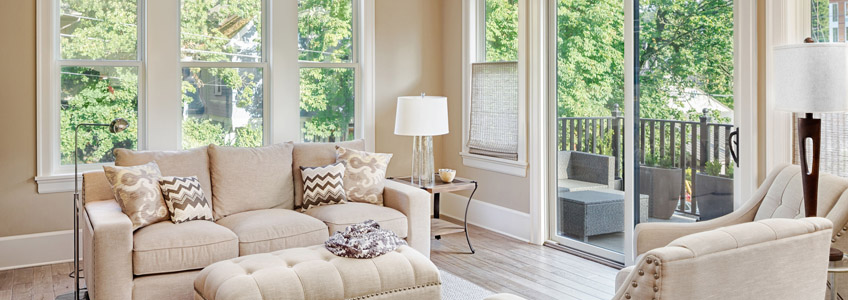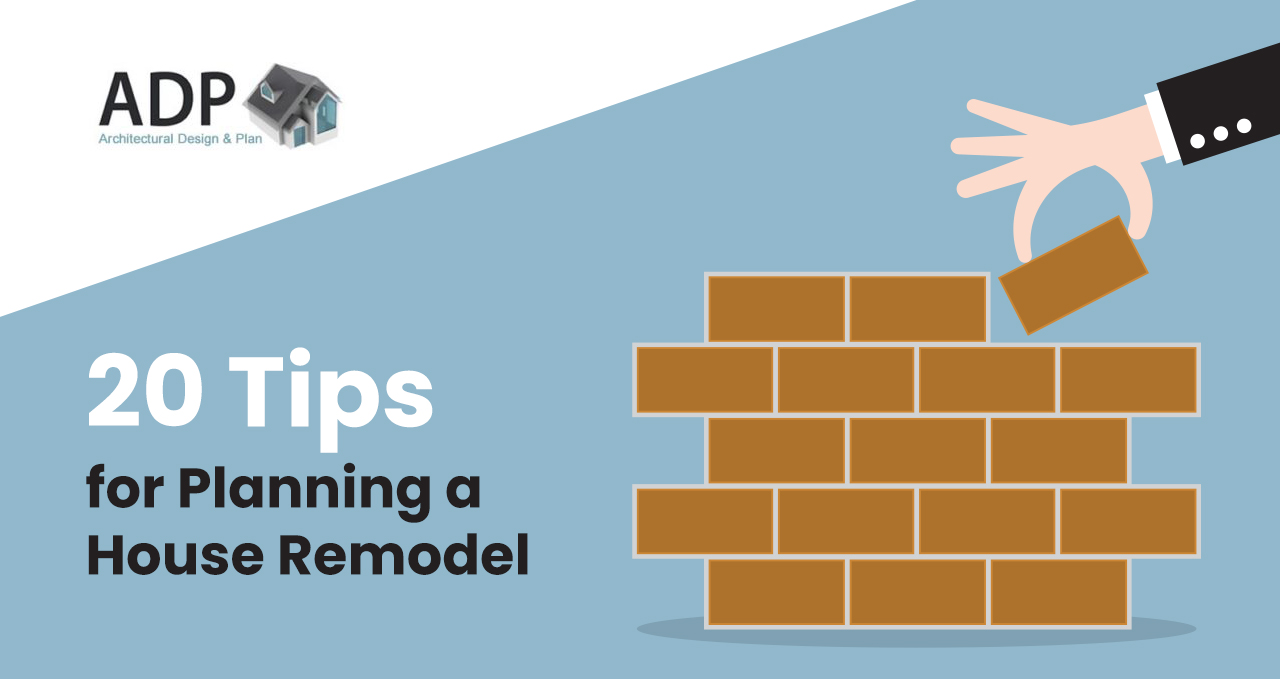Remodelling your house can be an exciting process. Sometimes, it may be so exciting that you may accidentally skip some important steps just to get your desired house on time. There are a lot of things to keep track of and decisions to be made when renovating. So, the whole process may be overwhelming for first-timers. Luckily, we have created a list of the best tips that would help you plan your next house renovation.
1. Set out goals
This seems obvious, but is also very easy to forget. Before deciding on how much renovations your house would need, it is essential that you have a plan and an objective. What do you want your house to look like? You could make a list of the most important features that your renovated house should have.
You could also use different sites on the internet to help you decide what your renovation goals are. Once you get a clear picture of how your house should look like after the project is completed, then you are ready to move on to actually carrying out the process.
2. Set a budget and stick to it
Just like in every other project you will carry out, you need to set a budget before renovating a house. But having a budget is not enough! You have to stick to it. First, decide how much money you want to use in renovating your house. You could request for estimates of the cost of renovation from professionals.
Home Extensions Essex – Call: 01268 574191
Always add enough funds for unexpected costs that may arise during the project. If your budget is lower than the estimate of renovating your house, then eliminate some features that are not topping your priority list.
3. Work with time
Don’t just plan your renovation project without writing down the day, week or month you want it to be completed. Consult a calendar and set realistic time goals for your project. You should work backwards from the day you want your new house to be ready to determine how soon you should start working. As always, add a few days or weeks for situations that could come up during the planned period.
4. Find out all you can
You don’t need your thinking caps here. Instead, let your curiosity lead you. You will need all the information you can get on renovating houses. Talk to friends and experts on the challenges and opportunities they experienced when they carried out similar projects. They are the best people to give you quality advice because they have been in your shoes.
Work with all the pieces of information you have gotten to remodel your new house.
5. Be realistic with the things you can do

Everyone wants to turn their house renovations to a DIY project to save a few pounds. This can be a disastrous plan and could leave you with a worse-looking home. Don’t convince yourself (or any other person) to do things that they can’t do. Outsourcing jobs to contractors would increase your renovation cost, but it is a safer and more reliable option.
6. Get references
Don’t rely only on the advice your friends and family give you. Also, do not place all your hopes on the testimonials of the contractor’s clients. Ask for references for jobs that have been completed by the contractor. Also, request for before and after pictures to assess if these professionals can do a good job for you. Search for first-hand reviews of the projects the contractor has handled before.
7. Move your things out
To make the renovations easier to complete, pack up all your items to another home or location. You may rent a storage pod or locker. Make sure that you keep your belongings in a safe and secure location.
Loft Conversion Essex – Call: 01268 574191
If you do not pack up on time, you could lose a lot of items when renovating. You should move things out before you tear any feature down, so you don’t mix them up.
8. Consider and know your routine
Your renovation plan shouldn’t affect your daily routine irrespective of if your renovation is a DIY or contracted project. Work with your contractors to make sure that your daily activities are not affected by their plans. If you think there is a possibility of a disruption, you could move out till your new house is completed.
9. Arrange all the tools you would need before you renovate

It is very frustrating when you desperately need a tool and can’t seem to find it. Reserve a small area of your house to place all the materials, manuals and tools you would be using. If you would be contracting the job to a professional, make sure they return all tools and materials to the mission control area.
10. Protect your children
If you would be renovating your house by yourself, then you have to be very careful with the tools and materials that your children have access to. Use child-safety tools and covers around them at all times. Any sharp tool or electrical wire should be put away to ensure their safety. Always make sure that your children do not linger around dangerous areas.
11. Make a list of the items you would need
You will need a master list of every item you would be using so you don’t miss anything out. You can checklist items when renovating a house to know what you need to buy or restock. You may make a list of the tools to rent out, which is a cost-saving option.
12. Obtain a building permit

A building permit is crucial to any renovation project. Every area has a particular structural and fire-safety requirement that new and old houses must adhere to. In many places, if your house does not conform to these rules, you may be required to remove the feature. You could spend thousands of pounds resolving this problem, so remember to get a permit before you start renovating.
13. Prepare for the worst
Let’s be honest with ourselves. Unexpected things will happen irrespective of the time, resources and effort you put into remodelling your house. So, one handy renovation tip that you should always have at the back of your mind is to be prepared for the worst. Assume that problems would arise right from the start so you can resolve them when they eventually do.
14. Finish up structural projects first
In renovating a home, always put structural features on the top of the list. No one wants a messy bedroom and a well-furnished living room. So, improve your foundation, electrical systems and roof problems before any other feature in the home. A remodelled kitchen would look great, but a leaky roof would definitely destroy it.
15. Plan for how you would remove waste from the building
Renovating a house requires you (or your contractor) to tear down many features of your home. But the waste cannot just lie anywhere while you renovate. You must make plans to remove these waste and debris before you start renovating your house. Your budget should also cater for waste removal services that would be needed.
16. Always check the weather
The weather is very important when renovating a house. Depending on the feature that needs to be worked on, the weather conditions could make or mar your plans. Always check short and long-term forecasts before you (or your contractor) begins renovating. Unfavourable weather conditions don’t only affect your features. It could also slow you down. Always be on the lookout for unexpected changes in the weather.
17. Ask for help

Every remodelling project should be done within a timeframe. If you notice that your project is not progressing as fast as you would like it to, then it is definitely time to get all the help you need. However, it doesn’t have to be assistance from professionals. Your friends that know a thing or two about renovation can help you out. You may need to offer free food as an incentive!
18. Use drawings
You don’t have to be an architect to know that drawings are easier ways of communicating ideas to people. So, use lots of drawings to explain how you want your new house to look like. These drawings do not have to be state-of-the-art. However, you would need a professional drawing and plan to get a building permit to renovate your house.
19. Don’t forget your pets
You may think you’ve gotten everything covered and in place until you realise that your pet is not safe. It is advisable to keep them in a safe location until the renovations are over.
20. Use your resources and tools judiciously
Having excess materials after renovating does not mean you should be wasteful with them. A lot of these resources and materials can be used in other projects. You could even sell others to cover some extra costs that could have been incurred during the project. It is advisable that you keep your tools and excess materials in boxes.
Last Word
Taking cognisance of these tips above will help you on your way to a successful home renovation. Godspeed!



